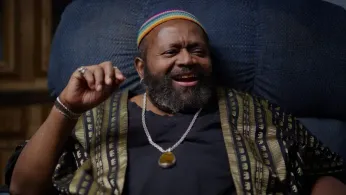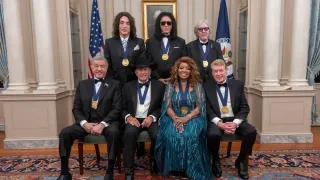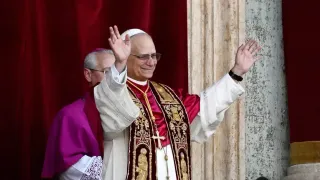
Nov 7
Disco, Divinity, and Defiance: The Enduring Legacy of Carl Bean’s “I Was Born This Way”
READ TIME: 3 MIN.
Picture this: It’s 1977, the mirrorballs are spinning, and a Motown groove pulses through crowded clubs from New York to Los Angeles. Suddenly, a voice rises above the thrum, declaring, “I’m happy, I’m carefree, and I’m gay—I was born this way!” With that, Carl Bean didn’t just release a track; he detonated a rainbow-colored flare in the heart of disco, forever changing the soundscape of queer liberation .
Bean’s journey to disco icon wasn’t a stroll through Studio 54. Born in Baltimore, he survived childhood trauma, family rejection, and a suicide attempt after being outed as a teen—an experience all too familiar for queer youth then and now . It was a European exchange doctor in a Baltimore hospital who told young Carl, “There are many people like you. I can’t make you a heterosexual—but I can help you accept who you are and go for your dreams.” That affirmation wasn’t just life-saving; it was life-defining .
After finding his footing in New York’s gospel scene—thanks to a serendipitous encounter with gospel legend Alex Bradford—Bean’s velvet vocals landed him a Motown contract. But Motown wanted Bean to croon straight love songs. Instead, he chose disco defiance, recording “I Was Born This Way,” a song that would become a rallying cry for queer joy and resistance .
More than 40 years later, “I Was Born This Way” remains a mainstay at Pride parades and drag shows, sampled and remixed by generations of DJs. It’s more than a bop—it’s a mantra. Long before Lady Gaga declared herself on the right track, Carl Bean’s vocals reminded queer folks everywhere: “You don’t just exist; you deserve to take up space, to dance, to love, to be” .
The impact? Profound. For Black and brown LGBTaQ+ people—who have often been erased from mainstream queer narratives—Bean’s unapologetic presence as a Black gay man on Motown’s roster was revolutionary . In the words of David J. Johns, executive director of the National Black Justice Coalition: “Bean cared about LGBTQ+ / same gender loving people when few others did—and consistently dedicated his life to improving the lives of people in our community” .
But Bean didn’t stop at the dance floor. In 1982, he founded the Unity Fellowship Church Movement, the first open and affirming Black church for LGBTQ+ worshippers—a sanctuary where “God is love, and love is for everyone” wasn’t just a slogan, but a lived reality . With at least 17 churches worldwide, Unity Fellowship became a spiritual home for those pushed to the margins by both church and society .
Bean’s ministry didn’t just “welcome” queer people; it was led by them, for them. He shattered the binary between faith and queerness, proving that Black queer spirituality could be bold, visible, and rooted in justice .
When HIV/AIDS devastated Black and brown communities in the 1980s, Bean was there—founding the Minority AIDS Project (MAP) in Los Angeles in 1985. MAP became the first organization in the city to focus on Black and Latinx people living with HIV/AIDS, providing care, advocacy, and education to thousands—often when no one else would . Early supporters included none other than Maxine Waters and comedian Richard Pryor, who quietly donated to the cause .
Bean’s advocacy was fiercely intersectional, championing the needs of people most often left out of the national conversation—Black and brown LGBTQ+ folks, sex workers, and the poor. His work continues today, with MAP still providing vital services to more than a thousand clients each month .
Archbishop Carl Bean died in 2021 at age 77, but his legacy is immortal. His life’s work—music, ministry, activism—remains a blueprint for queer resistance and resilience . His message of radical self-love echoes every time someone steps out, steps up, or simply survives in a world that would have them shrink.
If you’ve ever been lifted by the chorus of a Pride anthem, found sanctuary in a queer-affirming church, or sought community in a crisis—thank Carl Bean. He didn’t just sing that we were born this way; he showed us how to live it.
As Bean’s own church wrote at his passing, “He worked tirelessly for the liberation of the underserved and for LGBTQ people of faith and, in doing so, helped many around the world find their way back to spirituality and religion” .
So next time “I Was Born This Way” shakes the speakers, remember: it’s not just a disco classic. It’s a love letter, a battle cry, and a promise that every LGBTQ+ person deserves to dance—unapologetically—in the light.






